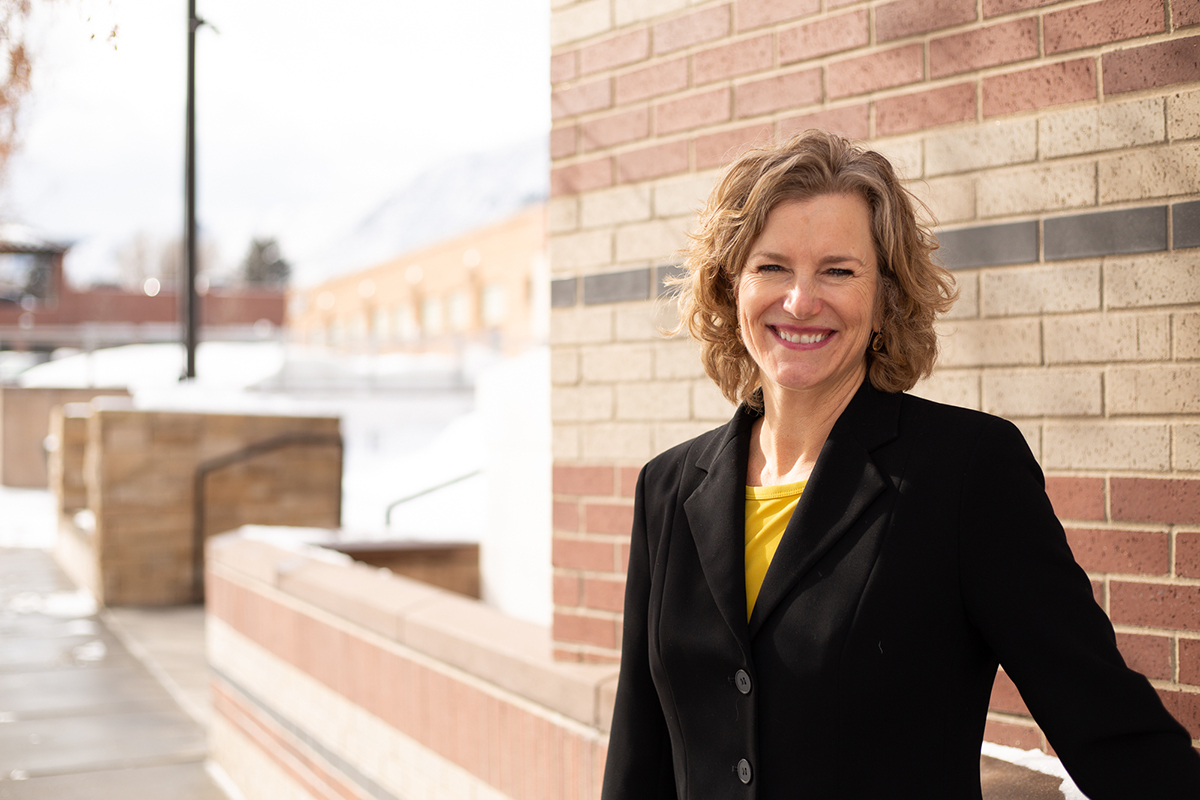
Dr. Carrie Besnette Hauser
Recently, I received my first COVID-19 vaccination. As the nurse who administered my shot – a Colorado Mountain College nursing program graduate – placed a small bandage on the injection site, I was once again energized by the contributions CMC makes to our state. This “shot in the arm” was both cause for optimism and a symbolic reminder that many challenges still lie ahead.
While it has been an exhausting year, it has also been inspiring and transformational. Ever since the pandemic rocked our world in March 2020, our team never missed an opportunity to make the dream of college a reality for students enrolled at CMC’s 11 campuses and online.
We worked nearly nonstop to gather facts, plan, innovate, communicate and implement strategies – all while maintaining an operation and facilities that support over 15,000 learners and nearly 2,000 employees without interruption.
Mere days after the Governor’s stay-at-home-order, we launched CMC Responds, a major initiative to provide local businesses with no-cost consulting and free summer tuition for thousands of students whose lives were disrupted by an economic nose-dive. Our employees and students agreed to practice the Five Commitments to Containment, which resulted in very few COVID-related incidents on our campuses.
This spring, CMC has offered more than 1,000 courses online or in a flex format, while safely delivering select classes in-person.
Facing a devastating recession, we were still able to secure several multi-million dollar grants, reinvesting them locally to make CMC even more accessible to learners in rural Western Slope communities.
I could not be prouder of our faculty and staff for their resilience and going above and beyond to maintain continuity of CMC services in new and creative ways.
And, their efforts paid off. We are on track to graduate the largest class of students in CMC’s history this May.
So, where do we go from here?
It will take more hard work, thinking differently about how we relate to each other and avoiding a “return to normal” that reinforces cultural divisions in our society. It means exploiting what this massive disruption taught us and using that information to more effectively reach all students.
And, by “all students,” I mean every individual who could benefit from CMC irrespective of income, age, gender, background or political beliefs and especially those marginalized by an unforgiving and rapidly-changing economy.
Colleges across the country articulate commitments to diversity and inclusivity. Noteworthy progress has certainly been made at CMC. The 15-point achievement gap between Hispanic and majority students when I arrived in 2013 is gone. The college’s senior leadership team is nearly equally gender balanced. I’m approaching eight years of service as the institution’s second female president.
While these are milestones to celebrate, the pandemic intensified barriers to college in our high-cost mountain towns. The lack of affordable housing, food insecurity and inadequate mental health services add great pressures to existing and aspiring CMC students.
Additionally, segments of the public remain dubious about the value of college. The pandemic’s heavy economic toll only reinforces their doubts. While higher education has become more open and accessible to a broader range of individuals, a renewed and charged perception that it is “elitist” has some students and families choosing to bypass its benefits. Better understanding and addressing this unfortunate narrative will be critical, especially for an open access institution that prides itself on welcoming everyone.
So, considering the challenges that will remain post-pandemic, we must recommit ourselves to finding and serving those still excluded from higher education.
CMC’s vision statement begins with these words: “We aspire to be the most inclusive, innovative and student-centered college in the nation…”
While this important phrase guides our institution daily, I also wonder if being “inclusive” underscores the disconnection some individuals feel? Inclusive implies inviting others in to an existing culture, environment, family structure or community. It doesn’t suggest that the culture or community itself must change.
Perhaps it would be more appropriate for higher education to expand itself to reach those not currently enrolled, aware or interested by examining long-standing norms and practices to find missing voices and divergent ways of thinking, challenging existing mind-sets and questioning operating practices that may exclude certain groups or individuals.
For CMC, “expansion” means looking differently at the hurdles that exist for our students (and potential students) to live, learn and thrive.
As we face the months ahead, I remain hopeful. This fall, all of our campuses will welcome students – both in person and online – with new tools, perspectives and attitudes. Together, our team will evaluate who is missing from the college, barriers that prevent their enrollment and strategies to ensure that all are successful and belong.
Dr. Carrie Besnette Hauser is President & CEO of Colorado Mountain College. She can be reached at president@coloradomtn.edu or @CMCPresident.
